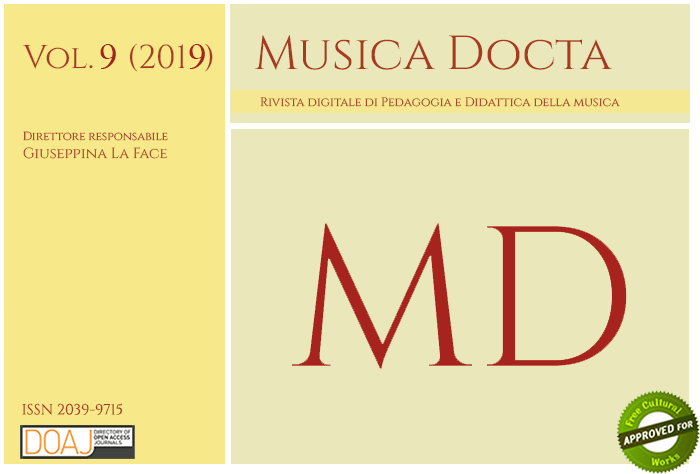Zur (musik-)pädagogischen Ambivalenz eines interkulturell angelegten Musikunterrichts in der allgemeinbildenden Schule
DOI:
https://doi.org/10.6092/issn.2039-9715/10186Keywords:
Foreign students, intercultural music education, intercultural competenceAbstract
This article questions the assumptions behind theoretical conceptions, which postulate substantial homogeneity among foreign students. Based on the results of a study by SINUS-Sociovision (2007), the author first of all identifies four distinct student types. These types show clear differences in terms of their self-image, their attitudes, values, mindsets as well in the ways they relate to their own, and to foreign-, macro-, and microcultures; they therefore require a sensitive and individualized approach within teaching and learning processes, and within societal backgrounds. The basic training of teachers, and increasingly also their in-service training, should provide adequate ways of identifying, and dealing with, different types of pupils and practices of intercultural music teaching. It should also develop methods for dealing with this additional diversity through a constant dialogue between educational science and teaching practice. The author considers the establishment of an ‘intercultural competence’ just as indispensable as the possible involvement of parents, as well as of external musicians as experts, in addition to the optimization of existing teaching materials.
Downloads
Published
How to Cite
Issue
Section
License
Copyright (c) 2019 Katrin Bye-Reiners
The copyrights of all the texts on this journal belong to the respective authors without restrictions.
This journal is licensed under a Creative Commons Attribution Share-Alike 4.0 International License (full legal code).
See also our Open Access Policy.
Metadata
All the metadata of the published material is released in the public domain and may be used by anyone free of charge. This includes references.
Metadata — including references — may be re-used in any medium without prior permission for both not-for-profit and for-profit purposes. We kindly ask users to provide a link to the original metadata record.






